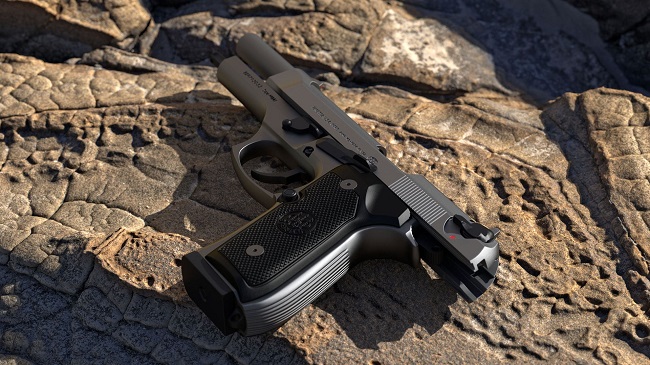
Duration 5h 36m Project Files Included MP4
Title: FXPHD – RND204 – Closeup Photoreal Enviroments Using RenderMan
Info:
COURSE NUMBER: RND204
SOFTWARE VERSION: 22
ORIGINAL RUN DATE: January 2019
DURATION: 5 hours 36 minutes
Project Files Included
This in-depth course, taught by Liam Whitehouse, covers how to create closeup photoreal 3D environments from start to finish. A key aim is to ensure that the end result holds up at resolutions up to 8K for next generation HDR VFX projects.
The classes include training on how to photograph “on set” using a digital SLR camera, how to build environments in Agisoft PhotoScan, modify and edit high resolution geometry in Zbrush, and create correct UVs for geometry. It also demonstrates how to correctly de-light textures and create final textures in PhotoScan, as well as how to setup materials, geometry, cameras, lights and AOV’s in RenderMan for Maya.
Software training in this course includes, Agisoft Photoscan, Autodesk Maya, RenderMan 22, Pixologic Zbrush, Foundry Nuke X, Adobe Photoshop and Adobe Lightroom.
Liam Whitehouse has been in the 3D and visual effects industry since 2003, graduating from Griffith University with a degree in Industrial Design. He has most recently worked as a Technical Director at Industrial Light and Magic where he completed work on Transformers 3. He has extensive experience using commercially available software for water simulations as well as experience using proprietary software available inside Lucasfilm for generating Rigid Body (Physbam), Gas Simulations (Plume) and particle simulations (Zeno). Liam has been recently teaching VFX at Griffith University Film School, and Nuke at Queensland College of Art in Brisbane Queensland.
Course syllabus
CLASS 1: OVERVIEW
How to plan the creation of photoreal full 3D shaded environments suitable for VR and 4K, managing system resources to work efficiently with large geometry scenes and large texture sizes, managing the limitations of software and planning ahead when creating content.
CLASS 2: ON-SET PHOTOGRAPHY
How to capture on set photography and lighting data specifically for high end photogrammetry and 3D modelling and texturing, getting accurate color, and developing photos for Agisoft Photoscan.
CLASS 3: AGISOFT PHOTOSCAN
How to create large 3D environments in Photoscan, and managing the limits of memory for geometry and texture creation for scenes in ZBrush, Maya, and RenderMan.
CLASS 4: ZBRUSH
Exporting high poly 3D geometry for ZBrush and how to import and view the mesh in Zbrush. Using Z-Re-mesher to retain the same details as the original but with new topology. Using UV-Master to create new UVs which will produce better results in Agisoft Photoscan for texture creation and rendering in RenderMan.
CLASS 5: TEXTURES
An introduction to delighting texture maps with baked in “real” lighting from photography, using Photoshop to remove shadows and highlights to create an albedo map from the source texture and how to make repairs and adjustments to the texture created from Agisoft Photoscan, without damaging its colour and luminance integrity.
CLASS 6: SETTING UP THE SCENE IN MAYA
Using Maya to set up the scene with RenderMan materials and lights. Matching the lighting to real life photography.
CLASS 7: SETTING UP THE CAMERA IN MAYA
Matching a real cinema camera with focal length, aperture, and aspect ratio to obtain correct looking imagery. A look at depth of field settings, f-stop, and focus region scale. Using reference of real-life cinematography filmed on Cooke lenses and Alexa cameras and how to match the same look using RenderMan.
CLASS 8: RENDERMAN MATERIALS
How to create materials for the rocks and metal surfaces using RenderMan for Maya. Different types of material properties will be covered including using .tex maps, diffuse and specular colours with different roughness, and pxr flakes which can give a textured grainy surface to glass fibre and aluminium surfaces like real objects.
CLASS 9: NUKE X COMPOSITING
Importing an example scene render AOV’s into Nuke X and a basic overview of relevant Nuke settings. Setting up the composite to create an organised and clean script which may be easily picked up by another compositor. A look at a few grading and colour correction nodes in Nuke X to fine-tune the render passes. Adding grain, lens distortion, and vignettes.
CLASS 10: FINAL HIGH RESOLUTION COMPOSITE
Completing an 8K HDR final render so that it can be composited and colour graded with the finishing touches in Nuke X. Included with this class (for Premium subscribers) are several camera angles of high resolution 8K Image which has all the AOV’s pre-rendered.
Password/解压密码0daydown
Download rapidgator
Download nitroflare
转载请注明:0daytown » FXPHD – RND204 – Closeup Photoreal Enviroments Using RenderMan